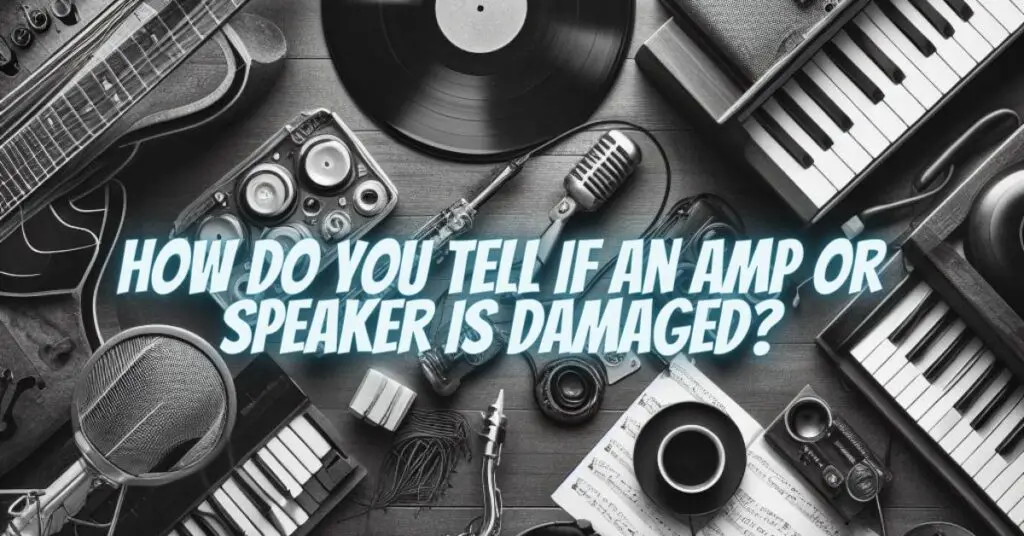There are a few ways to tell if an amp or speaker is damaged. Here are some common signs and symptoms:
- Distortion: If you hear distortion, such as buzzing, crackling, or popping, this is a sign that your amp or speaker may be damaged. Distortion can be caused by a number of factors, including overload, clipping, and heat.
- No sound: If you get no sound from your amp or speaker, this is a sign that something is definitely wrong. This could be due to a number of factors, including a blown fuse, a damaged speaker coil, or a problem with the amp’s output circuit.
- Reduced output: If you notice that your amp or speaker is not producing as much sound as it used to, this could be a sign of damage. This could be due to a number of factors, such as a dirty speaker cone, a damaged speaker coil, or a problem with the amp’s power supply.
- Smoke: If you see smoke coming from your amp or speaker, this is a sign that there is a serious problem. Immediately turn off the amp and disconnect it from the power source. This could be due to a number of factors, such as a short circuit, a blown fuse, or a problem with the amp’s power supply.
If you notice any of these signs or symptoms, it is important to have your amp and speaker inspected by a qualified technician. Trying to repair the amp or speaker yourself could be dangerous and could further damage the equipment.
How to prevent amp and speaker damage
There are a few things you can do to prevent amp and speaker damage:
- Avoid overload and clipping: Overload and clipping can cause distortion, which can damage your amp or speaker. To avoid overload, make sure that you do not turn up the volume too high. To avoid clipping, make sure that the input signal is not too strong.
- Keep your amp and speaker cool: Heat can damage your amp or speaker. To keep your amp and speaker cool, make sure that they are well-ventilated. Do not place your amp or speaker in a confined space, such as a cabinet.
- Use the correct impedance: The impedance of the speaker should match the impedance of the amplifier. If the impedance of the speaker is too low, it can overload the amplifier and cause damage.
- Use high-quality cables: High-quality cables will reduce the risk of noise and interference.
- Have your amp and speaker inspected regularly: It is a good idea to have your amp and speaker inspected regularly by a qualified technician. This will help to identify any potential problems before they cause damage.
By following these tips, you can help to prevent damage to your amp and speaker and extend their lifespan.


